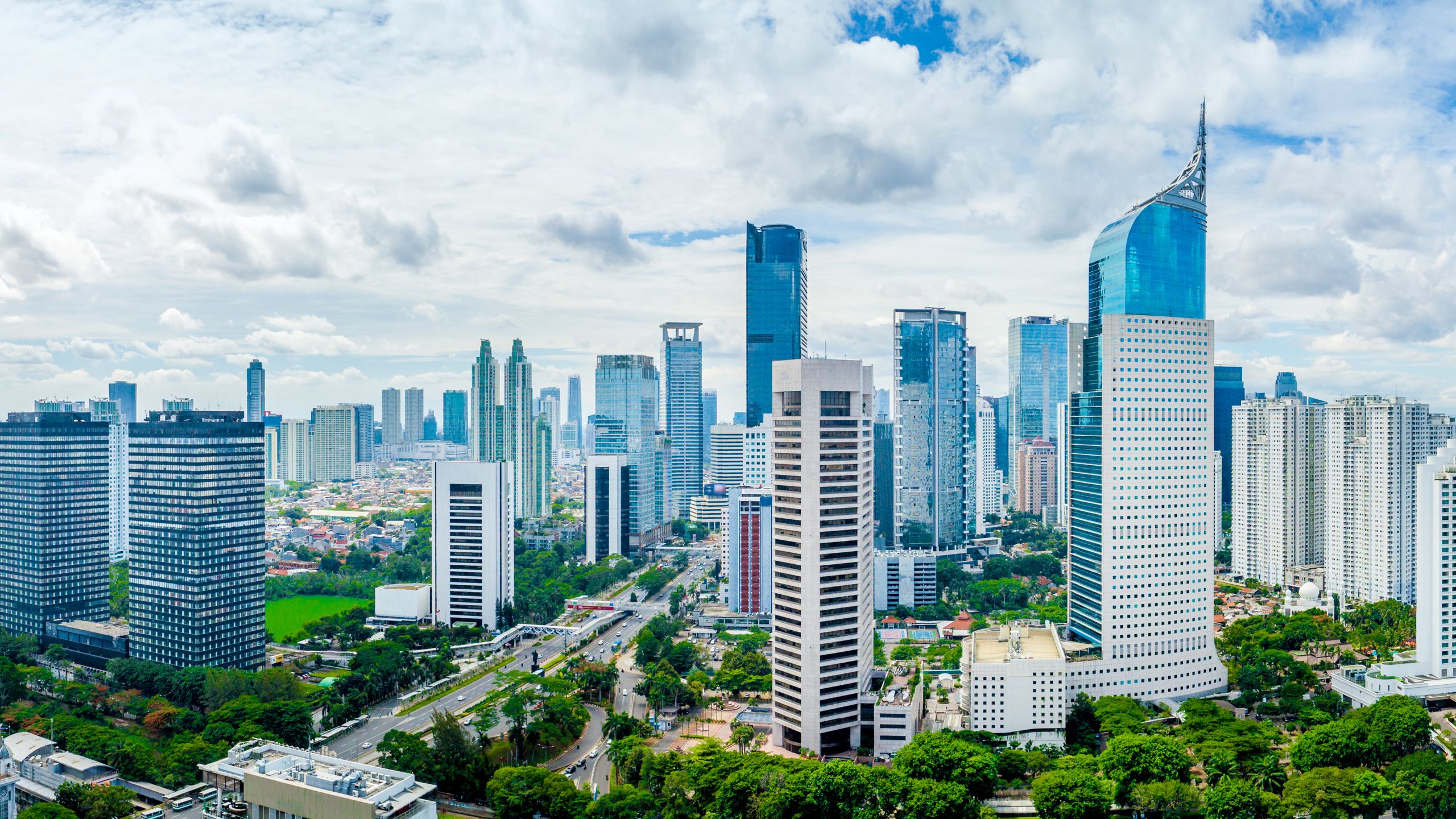Indonesia
Contributing law firm: SSEK Law Firm
Contacts: Ira A. Eddymurthy, Partner
Michael S. Carl, Foreign Counsel

ESG in APAC - Indonesia by SSEK Law Firm
Please click on the podcast above for a snapshot of the three key themes of ESG reporting, transition planning and greenwashing risks in respect of Indonesia. Scroll down for further information on each key theme.
A. ESG Reporting
1. Are there legal or regulatory requirements for companies to make ESG disclosures in your jurisdiction?
Yes, ESG disclosures are mandatory for publicly listed companies and financial institutions.
2. What are the key legislative and regulatory sources for ESG disclosure requirements and to whom do they apply?
(a) Financial Services Authority (Otoritas Jasa Keuangan or OJK) Regulation No. 51/POJK.03/2017 of 2017 regarding the Implementation of Sustainable Finance for Financial Service Institutions, Issuers (Emiten), and Public Companies (dated 27 July 2017) (OJK Reg. 51/2017). This regulation generally imposes the obligation for financial service institutions, issuers and public companies to implement sustainable finance and to submit a Sustainability Report, either as part of their annual report or as a stand-alone report, annually to the OJK and to make the report publicly accessible.[1]
(b) OJK Circular Letter No. 16/SEOJK.04/2021 regarding the Form and Substance of the Annual Report of Issuers (Emiten) and Public Companies (dated June 29, 2021) (OJK CL 16/2021). OJK CL 16/2021 governs the form and content of ESG disclosures in the annual reports of publicly listed companies and issuers. For example:
(i) The annual report shall include in the company profile section a list of industry associations (national or international) related to the implementation of sustainable finance;[2]
(ii) The annual report shall disclose, among other things, the actions taken by the company as part of its social and environmental responsibility. This disclosure shall be the Sustainability Report as per OJK Reg. 51/2017. The relevant explanations must at least include:
o The company’s sustainability strategy;
o Summary of the company’s sustainability efforts (economic, social, and environment);
o Brief profile of the publicly listed company;
o Board of Directors’ remarks;
o Sustainable governance;
o Sustainable performance;
o Written verification from independent party(ies), if any;
o Feedback from readers, if any;
o Response of the publicly listed company to the feedback from the previous year’s report.
(c) OJK Regulation No. 17 of 2023 regarding the Implementation of Governance for General Banks (dated 14 September 2023) (OJK Reg. 17/2023) mandates that banks must prepare and publish a sustainability report guided by OJK Reg. 51/2017.[3]
(d) The Minister of State-Owned Enterprises (MSOE) Regulation No. PER-2/MBU/03/2023 of 2023 regarding Guidelines for the Organization and Significant Corporate Activities of State-Owned Enterprises (dated 24 March 2023) (MSOE Reg. 2/2023). State-owned enterprises (SOEs) are required to prepare reports on a quarterly and annual basis through their Board of Directors containing, among other information, reports on the implementation of their social and environmental programs.[4] These reports must also be made accessible to the public.[5] A sustainability report may be drafted as part of the aforementioned publicized annual report.[6]
(e) Presidential Regulation No. 60 of 2023 regarding the National Strategy on Business and Human Rights (dated 26 September 2023) (PR 60/2023). This regulation requires the Regional Business and Human Rights Task Force, the National Business and Human Rights Task Force, and the Ministry of Law and Human Rights (MOLHR) to report on the implementation and outcome for Business and Human Rights Actions (BHAM Action).
BHAM Action refers to strategies and steps that elaborate on the National Strategy on Business and Human Rights, which serve as guidelines for stakeholders, e.g. government organs, institutions, agencies and business actors, to improve the protection, respect and remedy of human rights. This reporting is to take place in the following sequence:
(i) The Regional Business and Human Rights Task Force reports the outcome of the BHAM Action implementation to the National Business and Human Rights Task Force;[7]
(ii) The National Business and Human Rights Task Force (GTN BHAM) reports the outcome of the BHAM Action implementation to the MOLHR;[8]
(iii) The MOLHR reports the outcome of the BHAM Action implementation to the President of the Republic of Indonesia.[9]
3. Are the requirements mandatory or do they apply on a comply-or-explain basis?
The disclosure requirements envisaged in the abovementioned regulations are mandatory, with the exception of the sustainability report referred to in MSOE Reg. 2/2023. Non-compliance with the aforementioned disclosure requirements is sanctionable, save for those required under PR 60/2023.[12]
4. Which aspects of ESG do the requirements focus upon?
Overall, the requirements cover economic, environmental, social and governance aspects.
5. Are the disclosure requirements based on international standards? If so, which one(s)?
Indonesia’s disclosure requirements are not based on international standards. However, the following points should be kept in mind:
(a) reference to international standards is possible when preparing Sustainability Reports pursuant to OJK Reg. 51/2017 and OJK CL 16/2021.[13] The information in the section of the Sustainability Report referred to in section F.25 of Appendix II to OJK CL 16/2021 is to be disclosed with reference to the 17 UN Sustainable Development Goals.
(b) PR 60/2023 is based on the United Nations Guiding Principles on Business and Human Rights: Implementing the UN Protect, Respect and Remedy Framework (UNGP). As such, the contents of reports made pursuant to this regulation will reflect the standards of the UNGP.
6. How do the disclosure requirements approach materiality (e.g. single or double materiality)?
The disclosures contained in Sustainability Reports prepared pursuant to OJK Reg. 51/2017 and OJK CL. 16/2021 adopt a double materiality approach.[14] However, no explicit guidance is provided in MSOE Reg. 2/2023 or PR 60/2023 regarding the particular approach to be applied with respect to the disclosure requirements.
7. Are there requirements for the disclosure of GHG emissions? If so, please specify the scope (e.g. Scope 1, Scope 2 and/or Scope 3), to whom they apply and whether there are requirements on the measurement methodology.
Yes, there are requirements for the disclosure of GHG emissions.
A Sustainability Report prepared pursuant to OJK Reg. 51/2017 and OJK CL 16/2021 must disclose the amount of emission reduction produced by financial institutions, issuers, and public companies through their business activities directly related to the environment.[15] Such entities must also disclose their Scope 1 (specifically regarding consumption of fuel), Scope 2 (specifically regarding usage of electricity) and Scope 3 (specifically regarding official travel by flight) emissions.[16] While no specific methodology was designated for these disclosures, international standards may be employed and identified in the Sustainability Report.[17]
Save for the above, it is worth noting that the current legal landscape in Indonesia often does not distinguish between the different scopes of GHG emissions. Bearing this in mind, the following regulations are also noteworthy in this context:
(a) Ministry of Environment and Forestry (MOEF) Regulation No. 13 of 2021 regarding the Continuous Industrial Emission Monitoring Information System (MOEF Reg. 13/2021) requires all businesses or activities mandated to monitor their emissions using the Continuous Emissions Monitoring System (CEMS) to integrate their data into the Information on Continuous Industrial Emission Monitoring System (SISPEK) by 1 January 2023.
Ten industries are required to use SISPEK, namely: iron and steel smelting, pulp and paper, synthetic fibre (rayon), carbon black, oil and gas, mining, thermal waste treatment, cement, thermal power generation, and fertiliser and ammonium nitrate. These industries are further regulated by sectoral regulations.
For instance, in the thermal power generation sector, MOEF Regulation No. P.15/MENLHK/SETJEN/KUM.1/4/2019 Tahun 2019 regarding Emission Quality Standards for Thermal Power Plants (dated April 23, 2019) (MOEF 15/2019) requires a party operating a thermal power plant to report the calculation of emission load produced, which includes GHG emissions on a scheduled basis.[18] The monitoring of such emissions is to be done using CEMS or manual calculations (i.e. a testing laboratory).[19]
(b) Presidential Regulation No. 98 of 2021 regarding the Implementation of Carbon Economic Value to Achieve Nationally Determined Contribution Targets and Control Over Greenhouse Gas Emissions in Relation to National Development (dated October 29, 2021) (PR 98/2021) requires business actors, regents/mayors, governors and relevant ministries to report on corporate, sectoral, regency/city and provincial GHG emissions for purposes of inventorying GHG emissions in the context of implementing climate change mitigation acts to achieve Indonesia’s targeted Nationally Determined Commitments (NDCs).[20]
In this vein, the relevant measurements, especially in regard to reductions in GHG emissions, should meet with the customary standards of the United Nations Framework Convention on Climate Change or the Intergovernmental Panel on Climate Change.[21]
8. Are there requirements to obtain independent assurance of any ESG disclosures? If so, what is the scope of such requirements?
Independent assurance of ESG disclosures is encouraged but not mandatory. While one of the minimum requirements for Sustainability Report, pursuant to OJK Reg. 51/2017 and OJK CL 16/2021, is written verification from independent parties, this requirement is accompanied by the qualifier “if any”.
MSOE Reg. 2/2023 and PR 60/2023 do not explicitly require independent assurance for ESG disclosures by SOEs, Human Right Task Forces or the MOLHR.
9. For companies not subject to mandatory or comply-or-explain ESG reporting, are voluntary ESG disclosures customary?
A few notable companies in various sectors (oil and gas, mining, etc.) have issued sustainability reports even though it is not mandatory.
10. Has your jurisdiction issued or adopted a taxonomy on sustainable activities? Is it mandatory and what is its scope of application?
Yes. Indonesia introduced a voluntary Taxonomy of Sustainable Finance aimed at supporting Indonesia's Sustainable Development Goals, covering economic, environmental, and social aspects. The taxonomy serves as a guide to enhance capital allocation and sustainable financing, thereby supporting Indonesia's goal of achieving net-zero emissions by 2060.
The Sustainable Finance Taxonomy was developed for sectors outlined in Indonesia's Enhanced NDCs document, specifically, energy, forestry and other land use, waste, agriculture, and industrial activities.
11. Are there plans to adopt or incorporate the ISSB’s IFRS S1 and/or S2 standards? If so, please indicate the extent of alignment, to what extent the standards will be mandatory, to whom they will apply and the timeline.
Yes. The Institute of Indonesia Chartered Accountants (Ikatan Akuntan Indonesia) is in the process of preparing to adopt both ISSB’s IFRS S1 and S2 standards. Further details regarding the extent of alignment, the nature of the standards and to whom they will apply, and the expected timeline for completion have yet to be confirmed as discussions are still in the initial stages.[22]
12. Other upcoming developments / direction of travel
There are no other current updates on ESG reporting.








B. Transition planning
1. Has your jurisdiction set decarbonisation targets and strategies?
Yes, Indonesia has set targets to reduce carbon emissions by 31.89% (unconditionally) and by 43.2% (conditionally), which were included in Indonesia’s Enhanced NDCs Document that is to be aligned with the Long-Term Low Carbon and Climate Resilience Strategy 2050 with a vision to achieve net-zero emissions by 2060.
The government has also issued PR 98/2021, which stipulates various strategies to achieve Indonesia’s NDCs. These strategies include:
(a) Development of ownership and commitment;
(b) Capacity building;
(c) Creation of enabling conditions;
(d) Formulation of a framework and communication network;
(e) Policy for a single greenhouse gas emission and climate resilience data;
(f) Formulation of policies, plans, and programs;
(g) Development of NDC implementation guidelines;
(h) Implementation of the NDCs; and
(i) Monitoring and review of the NDCs.
2. Has the government or any regulator in your jurisdiction launched compliance and/or voluntary carbon trading schemes or carbon taxes? If so, please give details. If not, are there plans to do so?
Yes, both compliance and voluntary carbon markets are contemplated. The compliance carbon market was launched in 2023 and is initially to be limited to coal-fired power plants and will be expanded to other types of power plants from 2025, under Ministry of Energy and Mineral Resources (MEMR) Regulation No. 16 of 2022 regarding Guidelines for the Implementation Carbon Economic Value in the Power Plant Sub-Sector (dated 27 December 2022) (MEMR Reg. 16/2022). Similarly, the recent enactment of MOEF Regulation No. 7 of 2023 (dated 15 June 2023) (MOEF Reg. 7/2023) also provides a framework for carbon trading in the forestry sector.
Further progress has also been made in the development of voluntary carbon trading markets. OJK Regulation No. 14 of 2023 regarding Carbon Trading through the Carbon Exchange now provides the basic legal framework for carbon trading through the Indonesia Carbon Exchange (IDX Carbon), which launched in September 2023 for the trading of domestic voluntary carbon credits and potentially international voluntary carbon credits. The OJK has issued a carbon exchange licence to the Indonesia Stock Exchange. Outside of IDX Carbon, carbon trading can be conducted by direct trade, with the requirement that any direct trade must be recorded in the National Climate Change Control Registry System (SRN PPI).[23] Any overseas carbon trading requires the prior authorization of the MOEF.[24]
It is important to note that voluntary carbon credits (whether issued domestically or internationally) cannot be purchased to offset obligations under the compliance carbon trading schemes unless explicitly permitted by the applicable regime. The current laws and regulations in Indonesia do not allow the purchase of voluntary carbon credits for the purpose of achieving compliance under the compliance carbon trading scheme.[25]
In 2021, the Indonesian Government issued Law No. 7 of 2021, regarding the Harmonization of Tax Regulations (Harmonized Tax Law) (dated 29 October 2021), which sets out that a carbon tax will be imposed on carbon emissions that have a negative impact on the environment. The implementation of the carbon tax will target industries with high carbon emissions, starting with coal-fired power plants, which was to begin in 2022, with the full imposition of the carbon tax in 2025. However, the imposition of the carbon tax for coal-fired power plants has been postponed several times and is now planned to be introduced in 2025.
The carbon tax rate is IDR 30 per kilogram of CO2 or equivalent to around US$1.85 per tCO2.
3. Are there mandatory requirements for companies to have in place and/or disclose climate-related transition plans? If so, please give details (including whether there is any standard or guidance on transition plans and/or requirement to consider the social impact of the plan). If not, are there plans for such requirements?
Yes, the following list highlights key regulations governing the requirements for companies to have in place and/or disclose climate-related transition plans:
(a) PR 98/2021 obliges every business actor.[26] to record and report, among other things, its climate change mitigation and adaptation actions. This report is to be recorded in the SRN PPI.[27] Further guidance concerning the implementation of climate change mitigation and adaptation actions will be coordinated by the MOEF, which may involve other ministries as relevant.[28] The regulation does not oblige companies to consider the social impact of the actions.
(b) OJK Reg. 17/2023 which obliges banks to apply good corporate governance in the context of managing climate-related risk.[29] This obligation requires banks, among other entities, to maintain appropriate policies, procedures, and controls pertaining to the effective management of climate risks.[30] No further guidance is provided in this regard.
While not explicitly stated in the context of climate risk management, OJK Reg. 17/2023 does require banks to duly consider, implement, and integrate ESG values including through social enrichening of the community.[31]
(c) MEMR Decree No. 188.K/HK.02/MEM.L/2021 of 2021 regarding the Ratification of the Electricity Supply Business Plan (RUPTL) of the State Electricity Company (PT PLN) from 2021 to 2030 (dated 28 September 2021) (MEMR Decree No. 188/2021). This decree obliges PT PLN to deliver regular reports (on a quarterly basis or upon the request of the MEMR) on the implementation of the RUPTL, which includes the gradual retirement of coal power plants starting from 2030, among other goals.[32] Further guidance concerning the content and implementation of the RUPTL can be found in the Appendix to MEMR Decree No. 188/2021. See section B.4 below.
4. Are there mandatory requirements to set, meet and/or disclose climate-related targets? If so, please give details. If not, are there plans for such requirements?
Yes, while OJK Reg. 51/2017 and OJK CL 16/2021 do not explicitly require the disclosure of climate-related targets, they do oblige the disclosure of certain sustainability targets that were achieved in the past three years.[33]
Similarly, there are requirements for certain companies to meet certain climate-related targets. Most prominently, PR 112 of 2022 regarding the Acceleration of Renewable Energy Development for the Supply of Electrical Power (dated 13 September 2022) (PR 112/ 2022) establishes certain targets to be met:
(a) In implementing the RUPTL, PT PLN (i.e. the State Electricity Company) is obliged to, among other things:[34]
(i) Prioritize the purchase of electricity from power plants utilizing renewable energy;
(ii) Operate power plants utilizing renewable energy on a ‘must-run’ basis; and
(iii) Develop power plants utilizing renewable energy.
(b) PT PLN shall accelerate the termination of:
(i) The operation of its own power plants;
(ii) The electricity sale-purchase agreements of power plants developed by partner companies.
(c) The establishment of new power plants (with certain exceptions) is prohibited.[35]
The government has also outlined its commitment to energy efficiency through GR No. 33 of 2023 regarding Energy Conservation (dated 16 June 2023) (GR 33/2023). This regulation requires various stakeholders – including governmental bodies, private entities such as energy producers and users – to engage in energy conservation efforts, both upstream (primarily aimed at conserving energy resources) and downstream (focused on enhancing energy efficiency and conservation through energy-saving practices and the adoption of energy-efficient technologies), in energy management.
5. Other upcoming developments / direction of travel
The Draft Law on Climate Change Management has been stipulated in the Priority National Legislation Program. However, no draft or academic paper has been prepared at this stage. [36]
Various regulators are currently planning a pilot project concerning the trading of international voluntary carbon credits through IDX Carbon. Regulations governing the project are to be prepared in the near future.[37]

C. Greenwashing risks
1. Are there any recent examples of legal proceedings, regulatory actions or investigations against or into greenwashing in your jurisdiction?
No.
2. Are there any laws or regulations specifically dealing with greenwashing?
No, there are no laws or regulations that deal specifically with greenwashing.
3. What are the likely grounds on which such proceedings, actions or investigations can be instigated?
Likely grounds include:
(a) Breaches of directors’ fiduciary duties.
(b) Tort claims for misrepresentation.
(c) Criminal provisions on fraud, whether provisions on capital market-related fraud under the Capital Markets Law or general fraud provisions under the Criminal Code.
4. Other upcoming developments / direction of travel
None at the moment.

This material is provided for general information only. It does not constitute legal or other professional advice.
